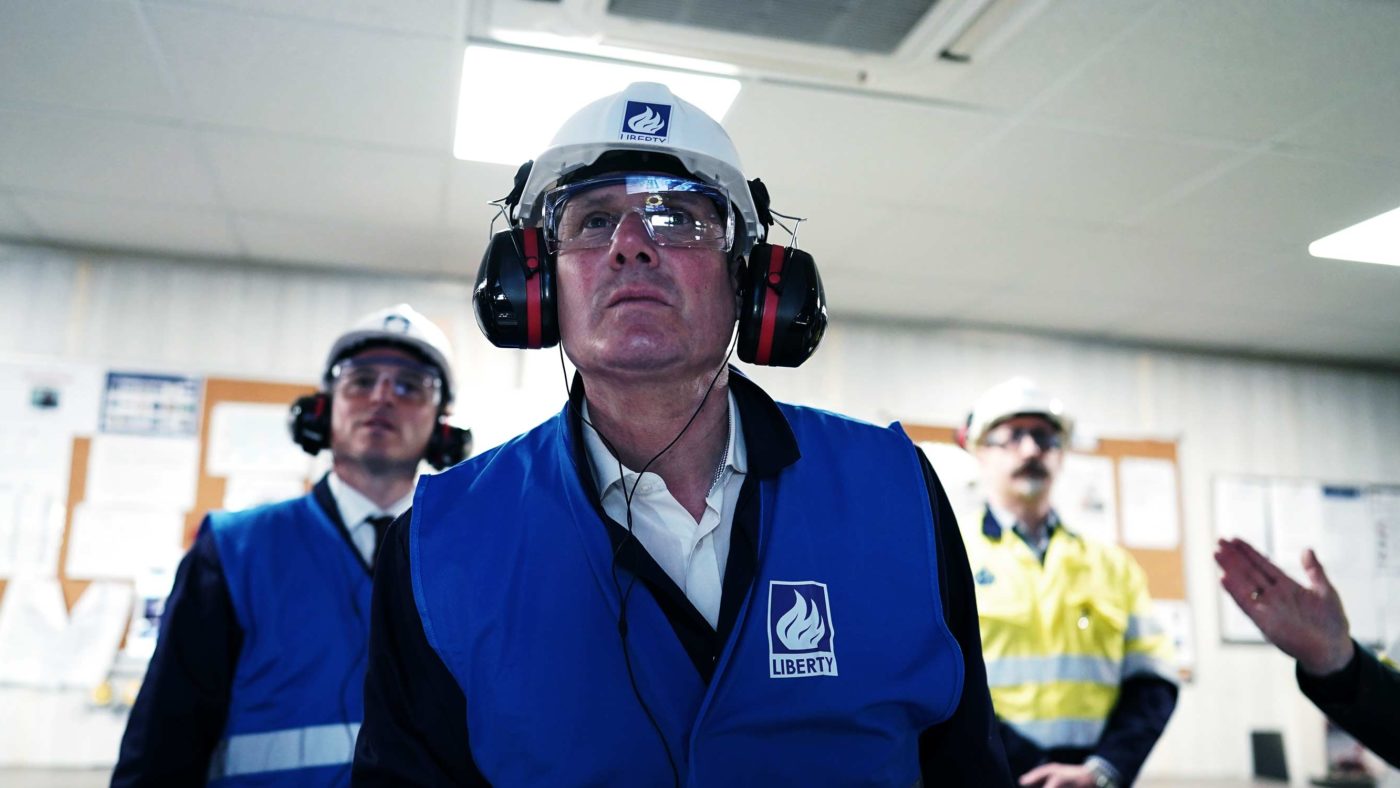Labour’s worst nightmares have materialised. Hartlepool, a constituency the party won 14 times in a row since its creation, has fallen to Boris Johnson’s Conservatives.
Governments aren’t supposed to win by-elections, let alone absolutely thump the opposition. And make no mistake, this was a thumping: the Tories won 52% of the vote compared to a pitiful 29% for Labour, with a majority of nearly 7,000 votes. The result made abundantly clear the extent to which the Brexit Party, since rebranded as Reform UK, saved Labour’s bacon in 2019 by splitting the Leave vote. This time, Reform got a meagre 1.2%, and the Tories cleaned up.
For all its electoral history, a heavily pro-Brexit town like Hartlepool was always going to be a serious test for Labour. Fighting a very pro-Brexit seat with a leader who was the chief architect of an anti-democratic second referendum policy was a big enough challenge, but the party did itself no favours. They chose a candidate, Dr Paul Williams, who was not only an arch-Remainer but had already lost a northern English constituency to the Tories in the last general election. If he was rejected by the voters of Stockton South, why on Earth would he be the person to win over the people of Hartlepool?
But Labour’s problems go well beyond a dull, uninspiring leader whose own north London seat voted 73% to remain in the EU. The party remains largely uninterested in taking on its central task: rebuilding the ties with its former pro-Brexit provincial heartlands. Far too many in Labour continue to view Brexit as a reactionary Little Englander enterprise – an assault on the ‘enriching diversity’ of modern-day British society, by uneducated white folk driven by irrational jingoism. Of course, this ignores the fact that British euroscepticism is a cross-class, multi-ethnic phenomenon which cuts through all levels of formal education. A mature political left would embrace Brexit and frame it as a catalyst for democratic and economic renewal – but far too many in the Labour Party are psychologically incapable of taking this step.
Equally important is that the mainstream culture in the party is fundamentally at odds with the views which run deep in the places it used to represent. Seat-level data delivered by UnHerd/Focaldata for the last general election showed that Hartlepool was one of the most pro-free speech constituencies in Britain, and also one of the most conservative seats when it came to youth gender self-identification. The modern Labour Party, packed to the rafters with radical student activists who specialise in undemocratic thought-policing behaviour and indulge in overzealous forms of identity politics, is unmoored from the traditional, undemonstrative views held in many English towns. Youthful Corbynites in the parliamentary party such as Zarah Sultana and Nadia Whittome may be wildly popular in their hard-left echo chambers, but their brand of social media savvy student politics is totally alien to places like Hartlepool. The fact that some on the Labour left genuinely see these MPs as the future of the party speaks volumes.
In contrast the Tory blueprint is clear, simple and unburdened with much ideological baggage – win the hearts and minds of as many pro-Brexit voters as possible through an ambitious economic plan for reducing regional inequality, pushing back on the excesses of identity politics and framing itself as an optimistic, patriotic force. Creating a well-ordered immigration system and reversing previous Tory cuts to frontline policing are two key policy areas for shoring up cultural conservatives who value both the stability and security of their local communities.
Armed with what is now an even bigger parliamentary majority, Boris Johnson has the chance to foster a cross-class, multi-ethnic conservativism which takes on two of Britain’s major problems: stark inter-regional inequality and high levels of family breakdown. The solution lies in a twin-track approach that emphasises improving skills across the regions, while also offering a social agenda that supports communities most at risk of family unit disintegration. Get that right and the Conservatives will consolidate support in areas eager for both economic regeneration and greater social stability.
The longer Labour mires itself in irrelevance with its grim brand of doom-mongering de haut en bas metropolitan politics, the bigger the opportunity for the Tories to cement and expand their popularity in parts of the country they would once have considered out of bounds.
Oh, and if Labour thought things couldn’t get any worse, they may soon be facing another northern by-election in Batley and Spen….
Click here to subscribe to our daily briefing – the best pieces from CapX and across the web.
CapX depends on the generosity of its readers. If you value what we do, please consider making a donation.


